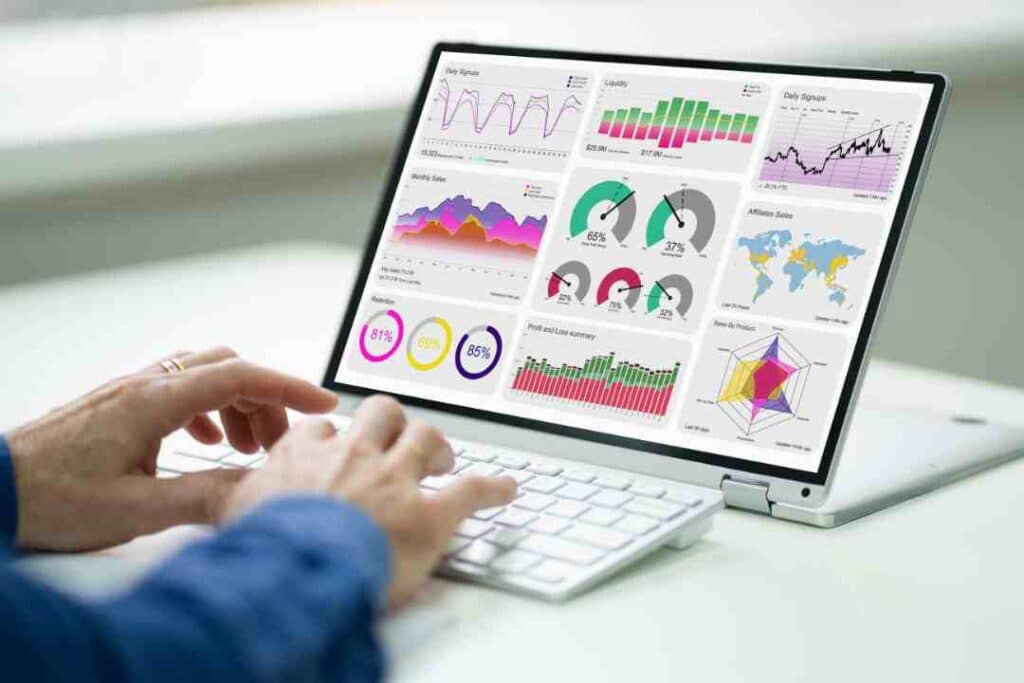Benefits of Predictive Analytics for Customer Decision Making

Predictive analytics is a powerful tool that has revolutionized the way businesses make decisions. By analyzing historical data and using statistical algorithms, predictive analytics can forecast future outcomes and trends. This technology has become increasingly popular in recent years, particularly in the field of customer decision making. In this article, we will explore the numerous benefits of predictive analytics for customer decision making and how it can help businesses gain a competitive edge.
1. Improved Customer Segmentation
One of the key benefits of predictive analytics is its ability to segment customers based on their behavior, preferences, and characteristics. By analyzing large volumes of data, businesses can identify distinct customer segments and tailor their marketing strategies accordingly. For example, a retail company can use predictive analytics to identify high-value customers who are likely to make repeat purchases and offer them personalized promotions or discounts.
By segmenting customers effectively, businesses can optimize their marketing efforts and allocate resources more efficiently. This not only leads to higher customer satisfaction but also increases the chances of converting prospects into loyal customers.
2. Enhanced Customer Lifetime Value (CLV) Prediction
Predictive analytics can also help businesses predict the future value of their customers, known as Customer Lifetime Value (CLV). CLV is a crucial metric that helps businesses understand the long-term profitability of their customer base. By analyzing historical data, businesses can identify patterns and trends that indicate which customers are likely to generate the highest CLV.
For example, a subscription-based business can use predictive analytics to identify customers who are likely to churn and take proactive measures to retain them. By offering personalized incentives or targeted marketing campaigns, businesses can increase customer loyalty and extend their customer’s lifetime value.
3. Personalized Customer Experiences
Personalization is a key driver of customer satisfaction and loyalty. Predictive analytics enables businesses to deliver highly personalized experiences by analyzing customer data and predicting their preferences and needs. By understanding individual customer behavior, businesses can tailor their offerings, recommendations, and communications to match each customer’s unique preferences.
For instance, an e-commerce platform can use predictive analytics to recommend products to customers based on their browsing history, purchase behavior, and demographic information. This level of personalization not only enhances the customer experience but also increases the likelihood of conversion and repeat purchases.
4. Improved Sales and Marketing Effectiveness
Predictive analytics can significantly improve the effectiveness of sales and marketing efforts. By analyzing customer data, businesses can identify the most promising leads and prioritize their sales efforts accordingly. This helps sales teams focus on the prospects with the highest likelihood of conversion, resulting in higher sales productivity and revenue.
Furthermore, predictive analytics can optimize marketing campaigns by identifying the most effective channels, messages, and timing. By understanding customer preferences and behavior, businesses can deliver targeted marketing messages that resonate with their audience, leading to higher response rates and conversion rates.
5. Fraud Detection and Risk Mitigation
Predictive analytics is not limited to customer decision making; it can also be used to detect and prevent fraudulent activities. By analyzing historical data and identifying patterns, businesses can develop models that flag suspicious transactions or activities in real-time. This helps businesses mitigate risks and prevent financial losses.
For example, credit card companies use predictive analytics to detect fraudulent transactions by analyzing customer spending patterns, location data, and transaction history. By identifying anomalies and patterns associated with fraudulent activities, businesses can take immediate action to protect their customers and their bottom line.
Predictive analytics offers numerous benefits for customer decision making. By leveraging historical data and statistical algorithms, businesses can improve customer segmentation, predict customer lifetime value, deliver personalized experiences, enhance sales and marketing effectiveness, and detect and prevent fraud. These benefits not only lead to higher customer satisfaction and loyalty but also provide businesses with a competitive edge in today’s data-driven marketplace.
With the increasing availability of data and advancements in technology, predictive analytics is becoming an essential tool for businesses of all sizes. To leverage the power of predictive analytics, businesses can turn to platforms like SaasExpert.ca – Your All-In-One Sales and Marketing Platform for small businesses, agency owners, and marketers. By harnessing the capabilities of predictive analytics, businesses can make more informed decisions, drive growth, and stay ahead of the competition.
Frequently asked questions about Benefits of Predictive Analytics for Customer Decision Making.

What exactly is predictive analytics and how can it benefit my business? 🤔
Predictive analytics is a powerful tool that uses historical data to forecast future events. For businesses, it can provide insights into customer behavior, sales patterns, and market dynamics. By leveraging predictive analytics, businesses can make informed decisions, identify patterns and trends within their data, and adapt their strategies to meet changing market conditions. This proactive approach can lead to stronger, more informed business decisions. 📈✨
How can predictive analytics improve the customer experience? 😊
Predictive analytics is revolutionizing the relationship between customers and marketers. By analyzing past customer interactions and behaviors, businesses can anticipate future needs and preferences. This means they can tailor their marketing efforts, product recommendations, and services to individual customer preferences, boosting sales while simultaneously increasing shopper satisfaction. It’s all about meeting the customer where they are and anticipating their needs! 🛍️❤️
Are there any challenges or risks associated with using predictive analytics? 🧐
While predictive analytics offers numerous benefits, it’s essential to be aware of potential challenges. Data quality is paramount; inaccurate or outdated data can lead to incorrect predictions. Additionally, while predictive analytics can forecast likely outcomes, it can’t guarantee them. It’s always crucial to use predictive insights as one of many tools in your decision-making toolkit and not solely rely on them. But when used correctly, the benefits can be transformative! 📊⚠️
How does predictive analytics give businesses a competitive edge? 🏆
In today’s data-driven world, businesses that harness the power of predictive analytics often have a significant advantage over their competitors. By understanding and anticipating customer needs, businesses can offer more personalized experiences, optimize their operations, and make more strategic decisions. This proactive approach can lead to increased efficiency, boosted sales, and enhanced customer loyalty. In short, predictive analytics can be a game-changer in the competitive business landscape! 🚀🌟
Can predictive analytics help in risk management? 🛡️
Absolutely! One of the standout advantages of predictive analytics is its ability to improve risk management. By analyzing historical data, businesses can identify potential risks and vulnerabilities in their operations or strategies. This foresight allows them to take preventative measures, allocate resources more effectively, and develop contingency plans. Whether it’s financial risks, operational hiccups, or market fluctuations, predictive analytics provides a safety net, helping businesses navigate challenges with confidence. 💼🔍
I hope these answers provide a clear understanding of the benefits of predictive analytics for customer decision making! 😄📚
- Benefits of Predictive Analytics for Customer Decision Making
- crm
- customer relationship management
- What is CRM Software?






